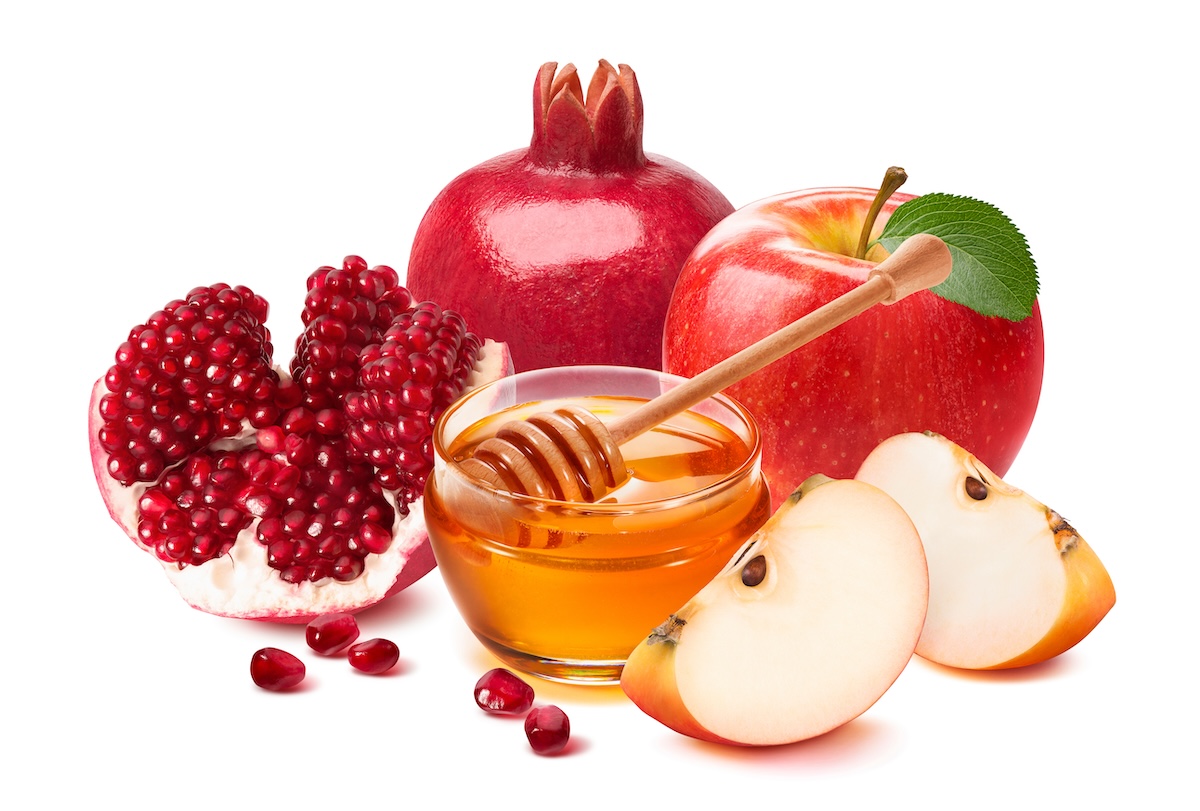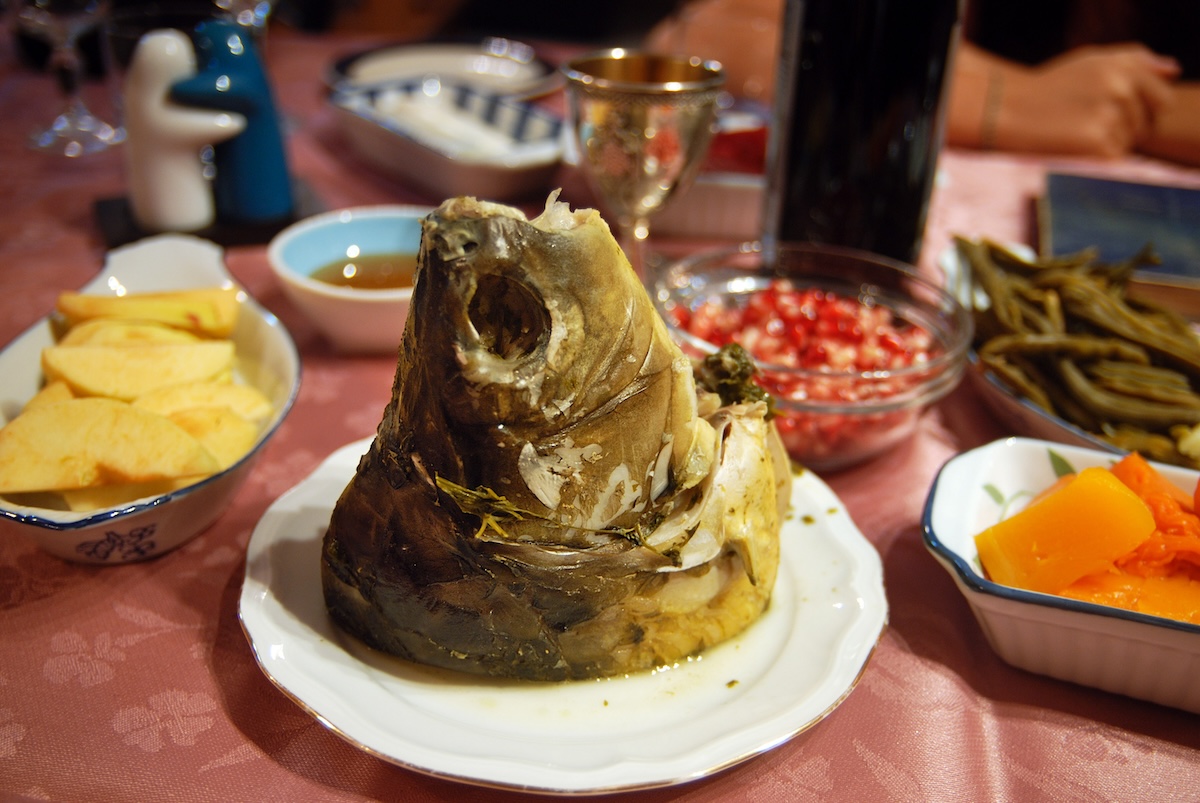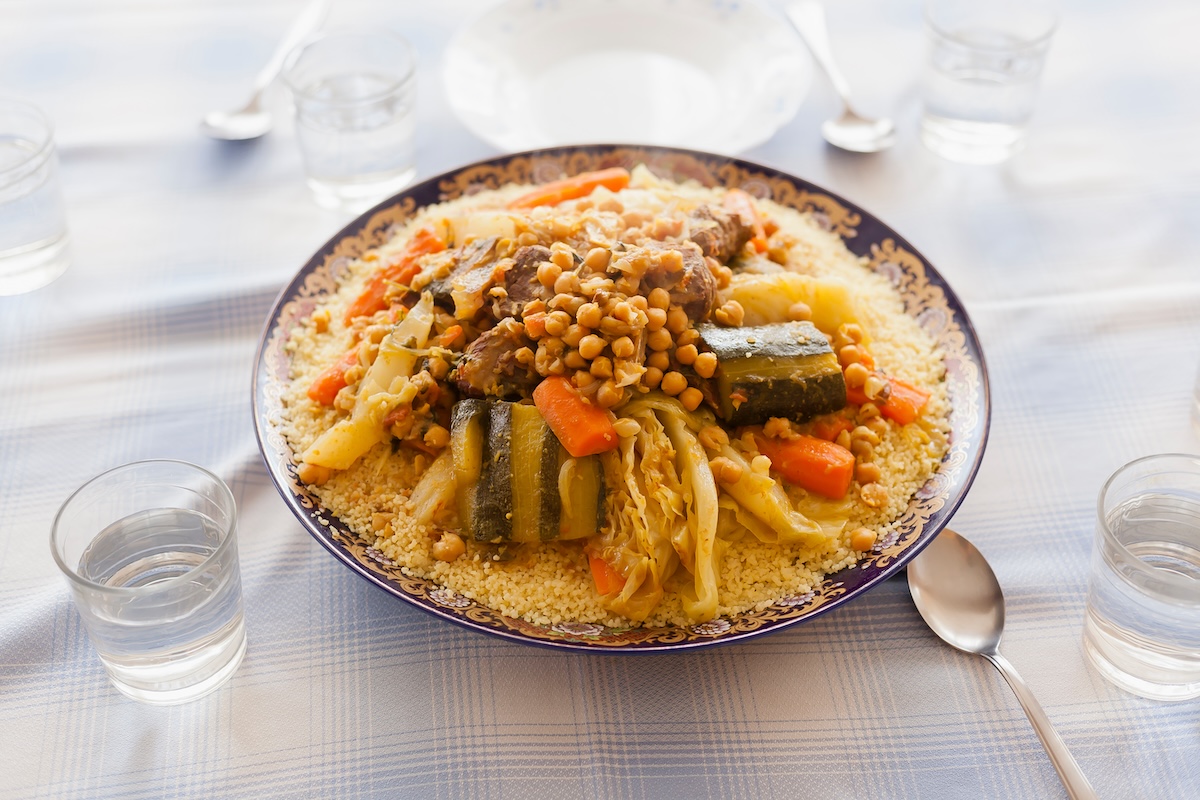From tradition to table: Meaningful dishes for Rosh Hashanah

At Rosh Hashanah, it's traditional to eat symbolic foods (סימנים – simanim) to start a good new year, blending Ashkenazic and Sephardic customs. The symbolic foods are selected because their Hebrew names resemble words associated with important concepts they represent. It is customary to include these foods in holiday meals, either individually or combined in dishes like salads, grain pilafs, or sweet stews.
Round challahs are a staple of many Rosh Hashanah meals, symbolizing endless goodness and reflecting the hope for continuous blessings throughout the year in Jewish tradition.

It can be filled with sweet raisins, symbolizing the Jewish people, complementing the circular shape that reflects the globe, embodying hopes for divine sustenance and prosperity. The round form also resembles a crown, echoing the theme of crowning God during sacred occasions. Additionally, it signifies the Jewish belief in one eternal God, without beginning or end, in contrast to pagan beliefs in multiple gods.
Honey (דבש – dvash), often paired with apples, is a traditional way to call on a sweet new year. You can hear the joyous “Shana Tova U'Metukah!” being repeated throughout neighborhoods and communities at this time of year.
Pomegranates (רימון - rimon) hold special significance as one of Israel's Seven Species and are often used as a "new fruit.” Symbolically, their many seeds represent the hope for a year full of merits.

Carrots (gezer) are eaten on Rosh Hashanah as their Hebrew name resembles "g'zar," meaning decree, symbolizing the hope for nullified negative decrees.
Beets (סלקא salka) and (סלק selek) are very close in pronunciation. They are symbolizing the hope that our enemies will depart.
Rubia (רוביא), likely referring to small beans or fenugreek is linked to the expression "ken yarvu," (כן ירבו) meaning "they will multiply," symbolizing the hope for a fruitful year.
Including a "head" on the Rosh Hashanah menu symbolizes the hope to lead rather than follow in the coming year. While fish or sheep heads are traditional, vegetarians can use cabbage or garlic heads.

Fish symbolizing constant awareness and vigilance, reflect the desire to stay mindful of God and opportunities to do good.
Leek (כרתי – karti) is associated with the word "kareyt," (כרת ) meaning "to cut," symbolizing the hope that those who seek to harm us will be cut off; spinach or chard can also serve as alternatives.
Gourd (קרא – kara), linked to the Hebrew word "k'ra," (קרע ) means both "to rip" and "to announce." They symbolize the hope that God will tear up any evil decrees and announce our merits.
Date (תמר - t'mar) evokes the word "tam" (תם) meaning "to end," symbolizing the hope that our enemies will be finished.
As one of Israel's Seven Species, dates also represent abundance; when the Bible refers to Israel as “a land flowing with milk and honey,” it likely alludes to date honey.

Do you want to try a yummy recipe?
From my heritage to my table: Sharing Sephardic Couscous for Rosh Hashanah
This year, I’ve chosen a recipe close to my heart, rooted in my Sephardic heritage. The Seven-Vegetable Couscous, a vibrant and flavorful dish, is a cherished tradition for the Jewish New Year.
While my mother’s couscous will always be the best, I’m excited to share my own version with my family!
Bon Appétit! Beteavon!
Seven-Vegetable Couscous
Prep Time 25 minutes
Cook Time 30 minutes
Total Time 55 minutes
Ingredients:
For the couscous
1 1/2 cups couscous, preferably whole grain
3 cups water
1 tablespoon vegan butter
1/2 teaspoon turmeric
1 teaspoon salt
For the vegetables
2 tablespoons extra-virgin olive oil
2 medium onions, chopped
1 cup finely shredded green cabbage
1 medium turnip, peeled and diced
1 medium yellow summer squash, halved lengthwise and thinly sliced
1 medium zucchini, halved lengthwise and thinly sliced
15-ounce can of chickpeas, drained and rinsed
1 1/2 cups diced ripe tomatoes
1/2 cup sliced sun-dried tomatoes
1/2 teaspoon ground coriander
2 tsp cumin
1 tsp paprika
1 tsp ground ginger
1 tsp cinnamon
1 tsp ras-al-hanout
¼ tsp cayenne
Dried hot red pepper flakes to taste, optional
Salt and freshly ground pepper to taste
Garnishes
1/2 cup dark or golden raisins, or finely chopped dried apricots
Sliced or slivered toasted almonds (for garnish)
1/4 cup minced fresh parsley
Instructions
Combine the couscous and water in a heatproof bowl. Cover and let stand until water is absorbed, about 15 minutes. Fluff with a fork, then stir in the vegan butter, turmeric, and salt. Cover and set aside.
For the vegetable stew, heat the oil in a large saucepan or soup pot. Add the onions and sauté over medium heat until translucent. Stir in cabbage and sauté until both it and the onion are lightly golden.
Add remaining stew ingredients. Bring to a simmer, then cover and reduce the heat to medium-low. Cook, stirring occasionally, for 15 to 20 minutes. Add water as needed to produce a moist, but not soupy, consistency. The vegetables should be just tender, but still firm.
To serve, arrange the couscous on the outer edge of a large serving platter and make a well in the center. Pour the vegetable mixture in the center, then sprinkle with the garnishes and serve.

The All Israel News Staff is a team of journalists in Israel.













